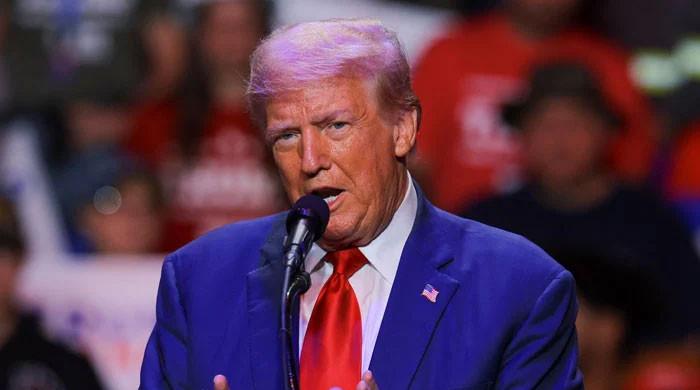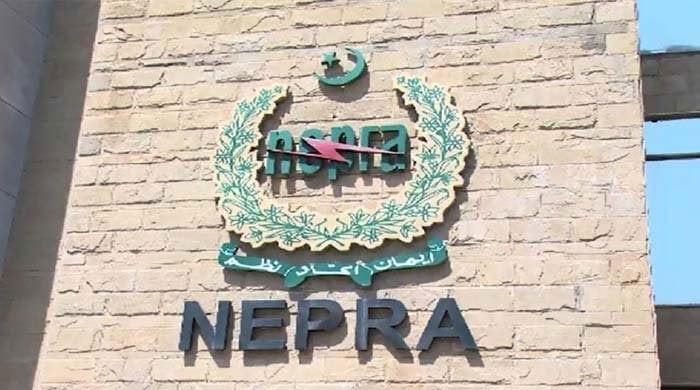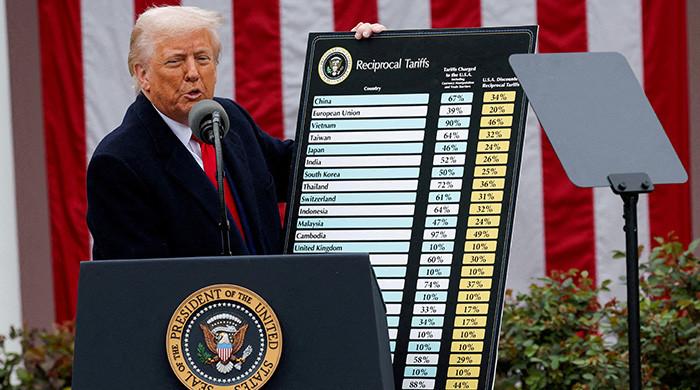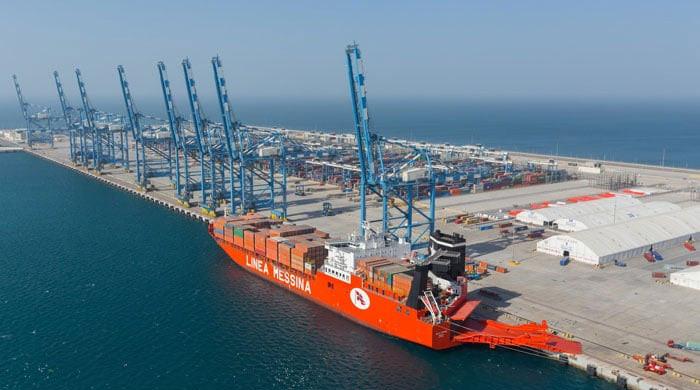IMF says ‘next step with Pakistan’ tied to external financing assurances
Ensuring that there is sufficient financing to support authorities is the paramount priority, says IMF official
March 24, 2023
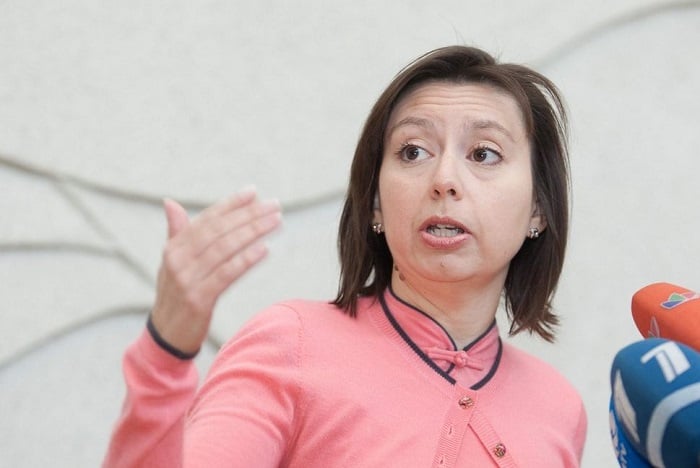
- Timely financial assistance from partners critical for agreement.
- Economy facing slowing growth, high inflation, financing gaps.
- Pakistani officials committed to implementing needed reforms.
The International Monetary Fund (IMF) on Friday tied “the next step with Pakistan” to assurances of financial assistance from bilateral and other sources for the release of a bailout tranche, supercritical for the liquidity-challenged country, whose deficient foreign exchange reserves needed an urgent shoring up.
“Timely financial assistance from external partners will be critical to support the authorities' policy efforts and ensure the successful completion of the review [with Pakistan],” said Julie Kozack, the IMF’s Director of Strategic Communications in a press briefing.
Pakistan and the IMF have been negotiating since early February on an agreement that would release $1.1 billion to the cash-strapped, nuclear-armed country of 220 million people.
The funds are part of a $6.5 billion bailout package the IMF approved in 2019 — vital to Pakistan to avert defaulting on external payment obligations.
The deal will also unlock other bilateral and multilateral financing avenues for Pakistan to shore up its foreign exchange reserves, which have fallen to four weeks' worth of import cover.
The IMF wants Pakistan to get the assurance of up to $7 billion to fund this fiscal year's balance of payments gap. Finance Minister Ishaq Dar has been saying it should be around $5 billion.
“Ensuring that there is sufficient financing to support the authorities is the paramount priority. A Staff Level Agreement (SLA) will follow once the few remaining points are closed,” she said adding financing assurances were a standard feature of all IMF programs.
“We do need to ensure that we have those financing assurances in place in order for us to be able to take the next step with Pakistan,” she added.
Kozack, when asked about the status of talks with Pakistan, said that discussions were ongoing between IMF staff and the Pakistani authorities toward an SLA on policies to complete the ninth review of Pakistan's extended Fund Facility (EFF).
“The authorities are committed to implementing the necessary reforms. They've started to implement decisive actions to stabilize the economy and restore confidence. While providing space to accommodate the needs related to the floods, including through an increase in social assistance through the Benazir Income Support Program, which is aimed at the most vulnerable,” she said.
The IMF spokesperson also said that Pakistan's economy faces multiple challenges including slowing growth, high inflation and large financing needs. “And of course, this is all coming on the back of devastating floods,” she said.
Earlier this month, Dar had said an assurance from "friendly countries" to fund a balance of payment gap was the last hurdle in securing an IMF deal, which would offer a critical lifeline to avert an economic meltdown.
Several countries had made commitments to support Pakistan during previous International Monetary Fund (IMF) reviews, Dar told the country's upper house of parliament, adding that the IMF was now asking for those commitments.
'Bailout not linked to elections'
The IMF on Thursday clarified that the ninth tranche under the Extended Fund Facility (EFF) programme between the lender and Pakistan was not linked to elections, reported The News.
“Decisions regarding the constitutionality, feasibility and timing of the provincial and general elections rest solely with Pakistani institutions,” IMF’s Resident Chief in Pakistan Esther Perez Ruiz told The News.
The official said that the global lender sets aggregate general government targets and within these, there is fiscal space to allocate or reprioritise spending or raise additional revenues to ensure constitutional activities could take place as required.
The IMF resident chief’s statement came after the Finance Ministry informed the Election Commission of Pakistan (ECP) that the country was facing a severe economic crisis and the government did not possess funds to undertake two provincial assembly elections separately within 90 days as per the Supreme Court’s verdict.
Earlier this week, the ECP had postponed the elections in Punjab saying that the finance secretary had cited a paucity of funds and the ongoing financial crunch as a reason for a lack of funds for the elections.
Pakistan is the only South Asian country that’s yet to secure a bailout from the multilateral lender as Sri Lanka clinched financing this week and Bangladesh pushes on with carrying out IMF-mandated reforms.
New fuel pricing scheme, a major hitch?
A long-awaited loan agreement between Pakistan and the International Monetary Fund (IMF) will be signed once a few remaining points, including a proposed fuel pricing scheme, are settled, an IMF official confirmed on Friday.
The latest issue is a plan, announced by Prime Minister Shehbaz Sharif last week, to charge affluent consumers more for fuel, with the money raised used to subsidise prices for the poor, who have been hit hard by inflation, which in February was at its highest in 50 years.
The scheme is planning a difference of around 100 Pakistani rupees (35 US cents) a litre between the prices to be paid by the rich and poor, according to the petroleum ministry.
Petroleum Minister Musadik Malik told Reuters on Thursday that his ministry had been given six weeks to work out the pricing plan. It would be not a subsidy but a relief programme aimed at helping the poor, he said.
But the IMF's resident representative in Pakistan, Esther Perez Ruiz, said the government had not consulted the fund about the fuel pricing scheme.
Ruiz, in a message to Reuters, confirmed a media report that a staff-level agreement would be signed once a few remaining points, including the fuel scheme, were settled.
The petroleum and finance ministries did not immediately respond to a request for comment.
With enough foreign reserves to only cover about four weeks of necessary imports, Pakistan is desperate for the IMF agreement to disperse a $1.1 billion tranche from a $6.5 billion bailout agreed in 2019.





